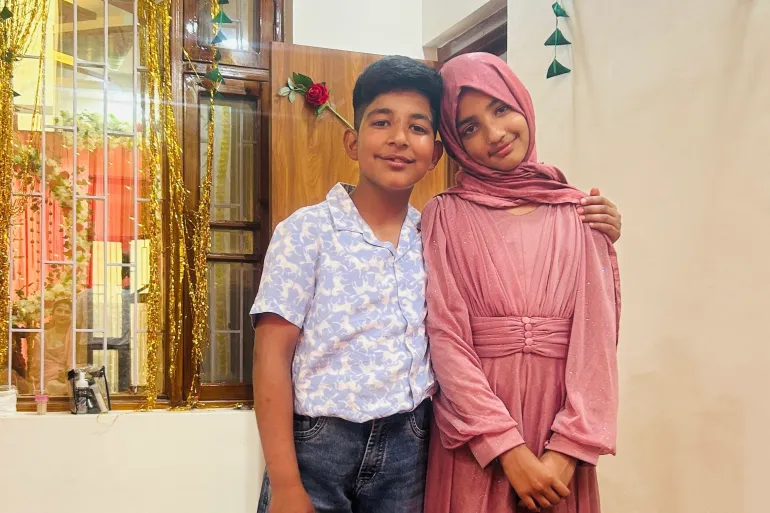
Cross-Border Shelling Between India and Pakistan Devastates Families Near Line of Control: Impact Felt as Far as Dubai
Poonch District, Indian-administered Kashmir – A heartbreaking photo on Javaid Iqbal’s mobile phone captures his 5-year-old daughter, Maryam, smiling innocently. Just weeks ago, she posed joyfully in a pink woollen beanie. Today, she is one of the latest victims of escalating India-Pakistan tensions along the Line of Control (LoC)—a tragedy deeply affecting families across South Asia, including in Dubai, where many residents have close ties to the region.
On May 7, 2025, an explosive device struck Iqbal’s home in Sukha Katha, a small village just 20 kilometers from the LoC in the Poonch region of Jammu and Kashmir, claiming the life of his daughter. The explosion was part of the fiercest military exchange between India and Pakistan in decades, leaving at least 21 civilians dead—15 of them in Poonch alone.
A Deadly Escalation of India-Pakistan Conflict
The recent hostilities mark one of the most intense confrontations between India and Pakistan since their last formal conflict. For four straight days, missiles, drones, and heavy artillery were exchanged across the LoC, pushing both nations to the brink of war before a ceasefire was declared on May 10.
While the ceasefire still holds, tensions remain high, with both governments launching diplomatic campaigns to garner international support for their respective narratives—efforts that have caught the attention of the South Asian diaspora in Dubai and beyond.
Human Tragedy Overshadows Diplomatic Talk
For families like Iqbal’s, the diplomatic push offers little comfort. “Oh Maryam,” Iqbal sobs, clinging to her image on his phone. “This is a loss I cannot live with.”
On that tragic night, Iqbal and his extended family were jolted awake by the sound of shelling. As explosions crept closer, he moved them to an outhouse, hoping the stone walls would protect them. But as dawn broke, a shell exploded nearby, sending metal shards tearing through the structure. Maryam lay mortally wounded. Her sister, 7-year-old Iram, was also injured and is recovering in Qasba, their ancestral village near the LoC.
Despite multiple attempts by emergency services, intense shelling kept ambulances from reaching their home in time.
Villages Turn into Ghost Towns
Sukha Katha, once home to around 200 families, now stands deserted. “Everyone has fled,” said Muhammad Mukhar, one of the few who stayed behind. “We’re just here to protect the abandoned houses.”
The town’s eerie silence is occasionally broken by gusts of wind blowing through broken windows and fluttering curtains. Most residents have sought refuge elsewhere, uncertain when—or if—it will be safe to return.
Why Civilians in India Are More Vulnerable
Political analyst Zafar Choudhary explains that the geography of the Poonch region puts Indian civilians at greater risk. “Villages on the Indian side lie in valleys, while Pakistani military posts sit on higher ground, giving them a tactical advantage. Even when India retaliates, damage to Pakistani civilians is minimal, making Indian towns like Poonch particularly exposed.”
Timeline of Escalation Between India and Pakistan
The renewed violence began on April 22, when 25 tourists and a pony rider were killed in an attack in Pahalgam, a scenic town in Indian-administered Kashmir. India accused Pakistan of supporting the gunmen—an allegation Islamabad denied.
In retaliation, India launched missile strikes on Pakistan and Pakistan-administered Kashmir, claiming to have destroyed “terror camps” and eliminated over 100 militants. Pakistan countered, stating that more than 50 civilians were killed, with only one military fatality. This exchange triggered the cross-border artillery shelling that killed Maryam and others.
Wider Impact on the Indian and Pakistani Diaspora in Dubai
With over 3 million South Asians living in Dubai, including large communities from India and Pakistan, these developments have deep emotional resonance. Many residents have family in Kashmir, and news of the conflict has created widespread anxiety.
Business owners, frequent travelers, and families with ties to the affected areas are particularly concerned. While Dubai International Airport has not issued travel warnings for South Asian routes, the situation is being closely monitored by UAE authorities and consulates.
For many in Dubai, where people from both nations live side by side in peace, the renewed violence is a painful reminder of how far peace remains in the region.
The Long History of India-Pakistan Conflict in Kashmir
India and Pakistan have fought four wars, three of which were over Kashmir. Since 1989, an armed rebellion against Indian rule has persisted in the region. India accuses Pakistan of aiding militants with weapons and training, while Pakistan insists it provides only diplomatic and moral support to the Kashmiri cause.
Despite a ceasefire agreement renewed in 2021, the border region remains volatile. The recent eruption is a stark reminder that, in Kashmir, peace is fragile and fleeting.
What’s Next?
As India and Pakistan work to de-escalate the situation diplomatically, families on both sides of the LoC remain haunted by their losses. In Dubai, where so many residents have roots in the subcontinent, there’s growing hope that peace will return—not only for the sake of geopolitics, but for children like Maryam, who are caught in the crossfire of history.





